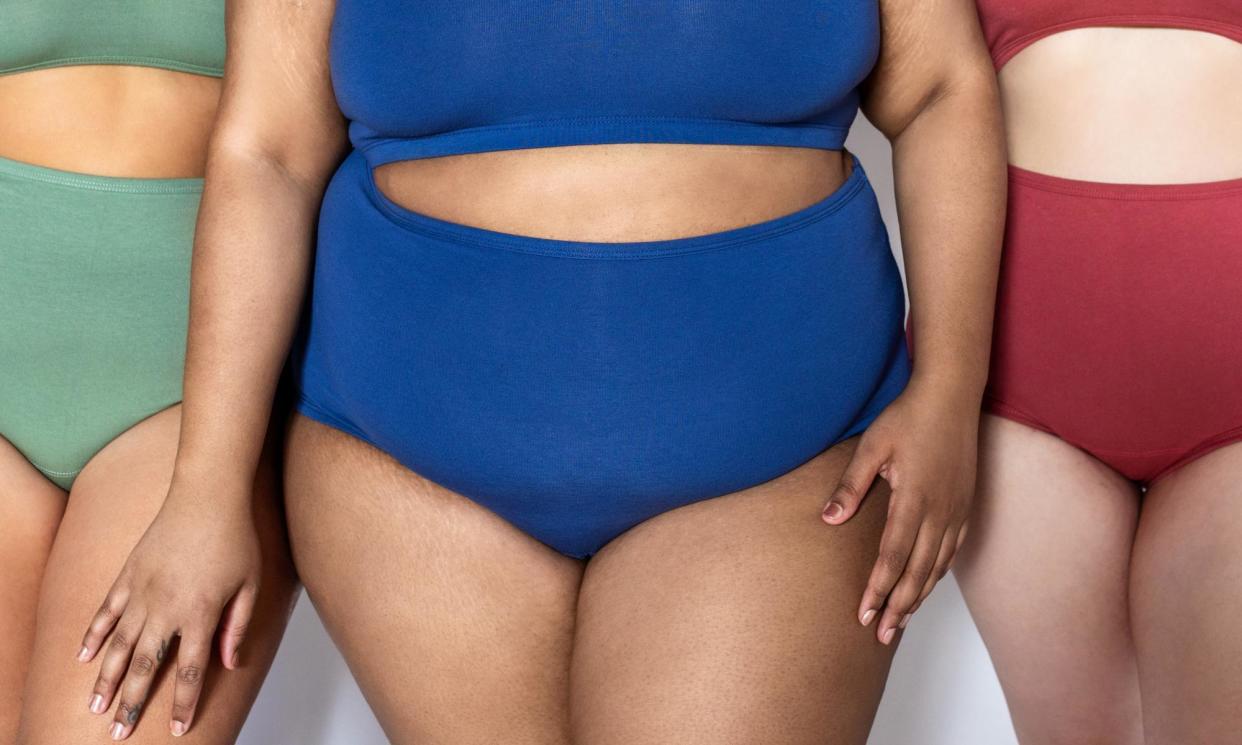Pornography and social media driving rise in labia surgery, Australian report finds

Pornography and social media are driving a rise in people having or considering labia surgery, with images and videos distorting perceptions of what genitalia look like, a new report has found.
The surgery, known as labiaplasty, is one of the fastest growing cosmetic procedures among young people in Australia and worldwide.
While there may be health reasons for reducing the size of labia, the rise in labiaplasties is being driven by women, girls and gender-diverse people wanting to alter the look of their vulva purely for cosmetic reasons.
The Labia Diversity report published by Women’s Health Victoria on Monday includes data from a nationally representative survey of 1,030 women and people with labia aged 18 to 50, who were asked about their attitudes towards their genitals.
Related: ‘Everything is hairless’: what 100 women taught me about porn and body confidence
Conducted by YouGov in April, the survey found almost a quarter (23%) of respondents aged 18 to 24 feel anxious, unhappy or embarrassed about how their labia look, while 35% associate their labia with negative words such as “weird”, “disgusting” or “ugly”.
One-in-10 respondents – the equivalent of more than half a million Australians – said they had or have considered labiaplasty, which involves the removal or altering of tissues from the labia, the folds of skin that sit on either side of a person’s vaginal opening.
This is despite the procedure carrying risks, while not being proven to help with body image, sexual satisfaction or self-esteem. Almost half (46%) of those who said they had considered labiaplasty said their decision was influenced by what they had seen in mainstream pornography or on social media.
One-in-eight respondents said they had put off a GP visit for sexual and reproductive concerns due to being embarrassed about the look of their labia, while 13% said they have felt embarrassed or unwilling to have sex due to their labia appearance.
Kate Johnston-Ataata is a policy manager at Women’s Health Victoria, which manages the Labia Library, a health literacy resource that receives 1 million visitors each year. The resource includes dozens of labia images to help educate people that diversity is normal, and has just been updated.
“We probably receive at least one comment per month from someone about how much the resource means to them,” she said. “We just got a beautiful one the other day from someone in Japan who said they had never received education about their body and it was transformative to have access to the information.”
When the library began 10 years ago, Johnston-Ataata said people reported their perceptions of their body being heavily influenced by magazines. The Labia Diversity report reveals how this influence has shifted to pornography and other online sources of videos and images, such as social media.
“There is so much imagery of people’s bodies online, including influencers and models posting images in swimwear, and then there is advertising from cosmetic surgery providers that are contributing to this perception of what’s ‘normal’,” she said.
“And there is the absence of imagery showing the true diversity of bodies.”
The report calls for better education of doctors about labial diversity. It said medical texts often show a stereotypical representation of a vulva with labia minora that do not protrude beyond the labia majora.
“There is still way too much labia shame, stigma and anxiety as well as plain old misinformation,” an adolescent health researcher and GP, Dr Melissa Kang, wrote in a foreword to the report.
Dr Magdalena Simonis, a women’s health expert and adviser with the University of Melbourne’s department of general practice, said she first started seeing patients concerned by the appearance of their labia around 2012, many of whom were just teenagers and who requested referrals to plastic surgeons.
“Some of them came with their mothers, saying that they had already booked appointments with a plastic surgeon who was going to undertake the procedure, and wanting a referral letter,” she said.
“They would use language describing their vagina as ‘prolapsed’ or ‘disgusting’ but when I examined them they had perfectly normal genitalia.”
She recalls that in a referral letter to a plastic surgeon for a patient under the age of 18, she wrote that she did not believe surgery was necessary or medically required, and that the patient had longstanding mental health concerns that first needed consideration.
Related: ‘Breasts are a serious political problem’: one woman’s quest to reclaim her chest
A few months later Simonis received a letter back from the surgeon saying the surgery had been done and that the patient was satisfied. The surgeon also sent her a stack of pamphlets about labiaplasty.
“I felt like my expertise and concerns were dismissed,” Simonis said. The experience drove her to lead research into doctor and patient understanding about the vulva, and into motivations for wanting surgery.
She also wrote clinical guidelines for GPs about female genital cosmetic surgery.
But education should begin in medical school, Simonis said, and parents should also be educating their children about their anatomy.
“Our parents may have grown up with a lot of shame around that part of the body due to women’s health issues being ignored or undermined, and due to medical misogyny,” she said.
“Now we are finally openly discussing and challenging all the systemic obstacles and barriers to addressing women’s health issues. We need to also challenge the perception that women should be designed in a particular way.
“There are a lot of misconceptions still to unravel.”

 Yahoo News
Yahoo News 
